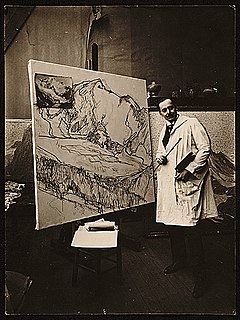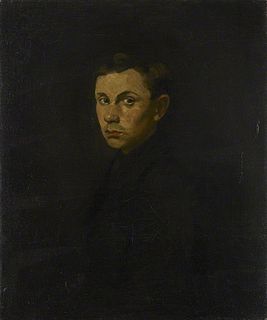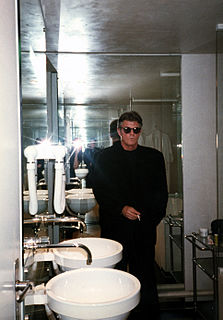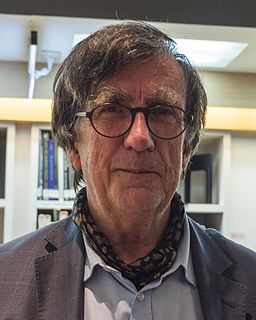A Quote by Fyodor Dostoevsky
Reality is infinitely diverse, compared with even the subtlest conclusions of abstract thought, and does not allow of clear-cut and sweeping distinctions. Reality resists classification.
Related Quotes
Reality became for me a problem after my experience with LSD. Before, I had believed there was only one reality, the reality of everyday life. Just one true reality and the rest was imagination and was not real. But under the influence of LSD, I entered into realities which were as real and even more real than the one of everyday. And I thought about the nature of reality and I got some deeper insights.
The Western approach to reality is mostly through theory, and theory begins by denying reality - to talk about reality, to go around reality, to catch anything that attracts our sense-intellect and abstract it away from reality itself. Thus philosophy begins by saying that the outside world is not a basic fact, that its existence can be doubted and that every proposition in which the reality of the outside world is affirmed is not an evident proposition but one that needs to be divided, dissected and analyzed. It is to stand consciously aside and try to square a circle.
The percept is the reality. It is not in propositional form. But the most immediate judgment concerning it is abstract. It is therefore essentially unlike the reality, although it must be accepted as true to that reality. Its truth consists in the fact that it is impossible to correct it, and in the fact that it only professes to consider one aspect of the percept.
Digital technology, you see, is not the villain here. It simply offers another dimension. I'm not sure if it's a farther remove from reality than analogue. I think if we can speak of reality, if reality and representation can be spoken of in the same sentence, if reality even exists any more, digital is simply another way of encoding that reality.
In the two or three or four months that it takes me to write a play, I find that the reality of the play is a great deal more alive for me than what passes for reality. I'm infinitely more involved in the reality of the characters and their situation than I am in everyday life. The involvement is terribly intense.
To see Reality is as simple as to see one’s face in a mirror. Only, the mirror must be clear and true. A quiet mind, undistorted by desires and fears, free from ideas and opinions, clear on all the levels, is needed to reflect the Reality. Be clear and quiet; alert and detached, all else will happen by itself.







































